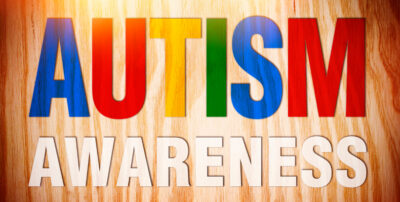Burke, Fairfax and Fairfax Station, VA
Balance is critical in life. It’s important to eat a balanced diet (although people sometimes disagree about what that mean). It’s vital to have a good work-life balance. And, on a more basic level, it’s important for your body’s systems to balance. During the holidays, there is so much demand on our time, our emotions, and our efforts that we are often made painfully aware of the imbalances in our life. It’s a great time to consider restoring balance.
Why Restore Balance
If your body’s systems don’t balance, they will interfere with one another. At the very least, this will keep you from reaching your full potential. But the consequences can be more severe, including pain, dysfunction, and other serious health effects. In extreme cases, an imbalance among your systems can even lead to death.
But in our office, we are all about balance, and we can help you find yours. And with the new myofunctional therapy, you may be able to restore balance with a series of simple exercises.
A Crucial Intersection
One of the reasons why balance in your jaw is so important is that it’s an intersection of many of your body’s most vital systems. Nerves, bones, muscles, blood vessels, and your airway all come together here as nowhere else in the body. When one of these systems is out of balance, it impacts all the others.
And, unfortunately, most of us have some degree of imbalance in at least one of these systems, leading to health problems like TMJ, airway impairment, and forward head posture.
TMJ
Temporomandibular joint disorder (TMJ or TMD) occurs when your jaw is out of balance. TMJ symptoms like jaw clenching, jaw pain, and headaches often flare up during the holiday season due to stress and effort.
Ideally, all the systems in the jaw are supposed to work together harmoniously. The jaw’s resting position should be comfortable for the muscles. Muscles should pull the jaw closed into a position that is healthy for the joints. Operation of the jaw should put moderate, even pressure on the teeth. And none of these elements should interfere with the airway or impinge on the nerves.
But in TMJ, one of these systems isn’t cooperating with the others. The jaw joint might have been knocked out of place, either with a direct blow or with whiplash. The muscles might not be comfortable in the normal jaw positions. The teeth might not fit together in a way that fosters healthy jaw position. No matter where the dysfunction started, once it occurs, it affects all the systems in the area. Symptoms related to the jaw, teeth, and muscles, are common. Other systems, such as the ears, may be affected as well, and symptoms can range from the top of your head to the base of your spine.
Snoring and Sleep Apnea
This holiday season you may notice the symptoms of sleep apnea such as daytime fatigue, waking without feeling rested, or difficulty staying awake.
Snoring occurs when your airway narrows while you sleep. When awake, your airway naturally falls open thanks to gravity. It’s also held open by your muscles. But when you lie down to sleep, gravity pulls your airway closed, and your muscles relax, allowing the airway to narrow greatly. When the airway narrows, the airflow becomes turbulent, vibrating the airway, which causes snoring.
Sometimes, the airway does more than narrow–it closes completely, cutting off airflow! This is called obstructive sleep apnea, and when it happens, your brain must awaken enough to open the airway and restore breathing. The episodes of choking not only keep your brain from entering the restorative, deeper levels of sleep, they stress your heart. Sleep apnea can trigger many serious cardiovascular problems, such as heart attack.
Although CPAP is the most common treatment for sleep apnea, it can also be treated by restoring proper balance to the jaw system with an oral appliance or other means.
Forward Head Posture
Forward head posture is when you lean your head forward without thinking of it. This is often the result of habitual straining or tilting of the neck, sometimes related to reading, frequent use of smartphones, or sleeping position. Other times, the cause is less clear.
The impact of forward head posture is clear, however. Holding the head forward is more stressful on the muscles and other soft tissue. The head is supposed to be supported by the spine, and when the weight doesn’t travel smoothly down the vertical column, the muscles have to work harder to support it. This can lead to muscle strain, which causes soreness in the neck and upper back. It can also cause pinched nerves, which can lead to tingling and numbness–often in the arms.
Myofunctional Therapy Restores Your Balance
Although there are many potential causes of these different imbalances, many of them are propagated and worsened by bad muscle habits. These habits may have started as accommodations to help you keep functioning despite an injury or dysfunction someplace else. But over time they became your normal function, and that prevents your body from restoring normal function.
Myofunctional therapy seeks to eliminate bad habits and establish good ones. The goal is to restore balance in this area, and thereby to reduce or eliminate the effects of imbalance, like TMJ, sleep apnea, and forward head posture.h2 Here’s how.
Proper Positioning
If you have gotten in the habit of holding your head, jaw, or tongue in an unhealthy position, myofunctional therapy teaches you to hold it in a better position. The better position is more comfortable, more functional, and promotes proper development.
Improved Development
The teeth and jaws develop partly under the influence of the facial muscles, especially the balance between the tongue and cheeks. If your tongue wasn’t properly positioned during your developmental years, it could have caused your jaw to develop poorly, leading to crowded, crooked teeth, jaw dysfunction, and a constricted airway.
Your body still has the capability to reshape itself, though. Through coordinated muscle movements, myofunctional therapy seeks to encourage more development of the jaw, which can straighten teeth, improve jaw position, and open up the airway.
Tongue Tie Release
Some developmental issues are caused by tongue tie, which prevents the tongue from exerting the full force necessary to proper development. If you have tongue tie, it may limit the effectiveness of myofunctional therapy. In these cases, we may recommend tongue tie release before therapy.
Find Balance Again
If you’re finding that imbalance in your life is wearing you down, let us help you find your balance again. Please call (703) 323-8200 today for an appointment at the office of Dr. Pamela Marzban.





